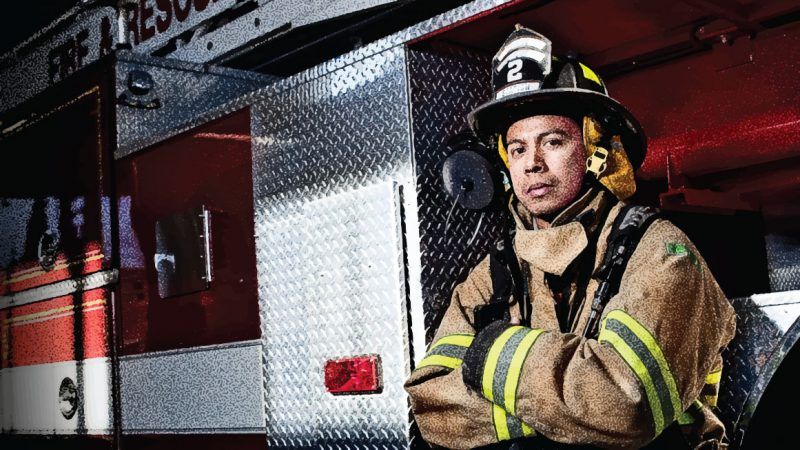Union Battles Inmates Who Want To Work as Firefighters

Each summer, when wildfires sweep through parts of the state, thousands of inmates from the California Department of Corrections are deployed to work alongside the professional firefighters to battle the blazes. The professionals earn an average of $74,000 annually in the Golden State, while the inmates settle for $3 per day—and that's not even the worst inequality in the system. When they get out of prison, those same men and women are barred from pursuing careers as a firefighter or emergency medical technician, thanks to a California law that prohibits anyone with a criminal record from working in those professions.
It's an arrangement the professionals are pushing to maintain. After last year's devastating wildfires in many parts of the state, California lawmakers took a serious look at lifting the ban on letting formerly incarcerated individuals work as firefighters, but opposition from firefighters unions killed the effort.
"Good for them that they can work to repay their debt to society in this fashion, but that's not the same thing as a firefighter," Carroll Willis, communications director for the California Professional Firefighters Association, told a local TV station in Sacramento. "Firefighters are sworn officers. They take an oath and can and should be held to the highest possible standard."
That's as callous as it is misleading. In Willis' view, an inmate can be trusted to fight fires—but the same person, once released from prison, cannot?
Most crimes should not come with a lifetime sentence, but too many of them do. According to the American Bar Association, there are more than 12,000 state licensing laws that limit career choices for the roughly 70 million Americans with a criminal record.
In some cases, those limitations might make sense. California's inmate firefighter program, for example, is not open to prisoners who have been convicted of arson, sexual assault, kidnapping, or a gang-related offense. That same policy, with some tweaking, could work on the outside. Yet there's no obvious reason a 19-year-old who had consensual sex with a 17-year-old, say, should be barred from fighting fires, and no reason a former gang member looking for a fresh start shouldn't have the chance to put his life on the line for people who need saving.
What's more, being able to use in-demand skills helps former prisoners transition to life as law-abiding citizens, while a blanket employment ban reduces the supply of trained firefighters in a state where wildfires are a serious concern.
That doesn't help anyone—except, of course, the professional firefighters who can demand inflated wages by keeping labor competition to a minimum.


Show Comments (9)